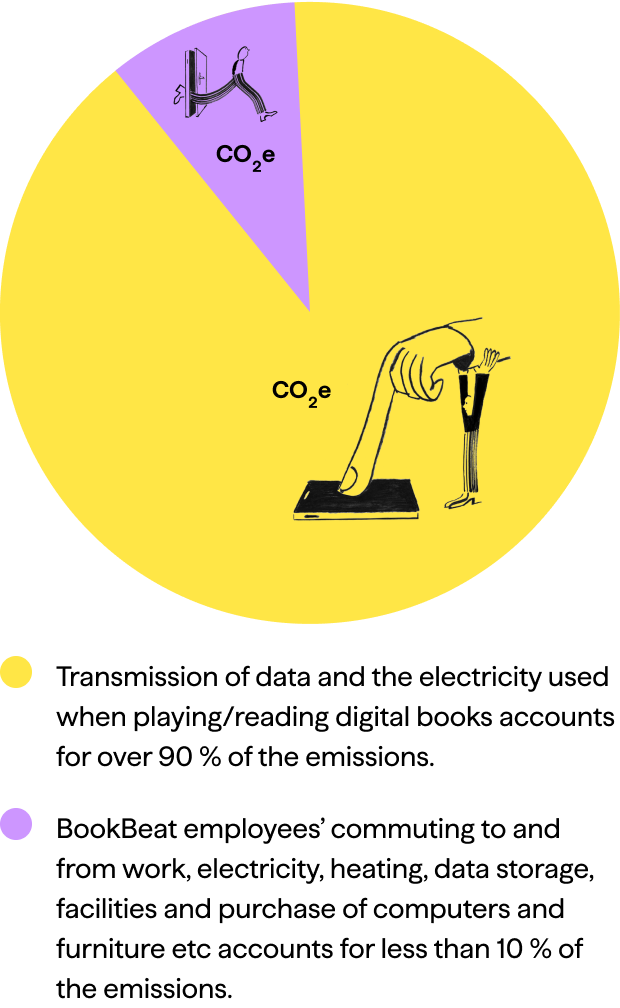Environmental impact
We strive to reduce emissions
As part of the Bonnier Books Group we have a common goal to reduce our greenhouse gas emissions with 25 % until 2025 (compared to the 2019 level). The target is in line with the most ambitious reduction trajectory of the Science Based Targets initiative, limiting global warming to 1.5˚C, and in accordance with the Paris Agreement. (More info at sciencebasedtargets.org.)
How do we measure our emissions?
We use the Greenhouse Gas Protocol which is the international emission accounting standard used to understand, calculate and handle the greenhouse gas emissions (GHG). Our emission accounting is performed by the 3rd party company South Pole.
What contributes to BookBeat’s total emissions?
The largest share of emissions for BookBeat is the transmission of data and the electricity the consumer's device uses when playing/reading a digital book. This accounts for over 90 % of the emissions BookBeat as a whole generates. The last 10 % of the emissions covers everything else and includes for example the employees’ commuting to and from work, electricity, heating, data storage, facilities and purchase of computers and furniture.
BookBeats CO2 emissions:

Emissions from audiobook streaming through BookBeat
In our most recent calculation (2023), the average emission intensity for one hour of audiobook streaming is 3.66 gCO2e. Emissions vary by country, with values such as 2.98 gCO2e for Sweden, 3.03 gCO2e for Finland, and 4.21 gCO2e for Germany, among others. These figures are calculated from the emissions associated with the transmission of data plus the actual consumption of the audiobooks (the electricity the consumer's device uses when consuming the book).
The difference in emission intensity between the countries depends on the variation in each country’s average electricity mix, namely the share of renewable (low-emitting) sources. Since it’s not possible to collect data regarding the exact electricity mix each customer has used when listening to books, we have used each country’s current average electricity mix as a basis for the calculations. You can find more information regarding the electricity mix for different countries, and the source that we have used here: Link
Active work to reduce emissions
We work actively to optimize the use of resources. For example we have moved cache (i.e. temporary memory for frequently used data) for books closer to the customer, which makes the entire chain of servers used for download and streaming much shorter and more efficient. Concretely, this means that when a customer is about to start listening to a book, the call to download the book goes to a nearby data center where the book is located, instead of having to be sent between a number of different networks first. The fact that we have made this change means that fewer servers and less hardware need to be used now than before.
In Sweden, our country of origin, we are proud to take part in an initiative to reduce emissions within the book industry. In the initiative, different parts of the book industry work together in a structured way to mitigate their climate footprint and reduce emissions from the book industry. More info is available at Bokbranschens klimatinitiativ (bbki.se)